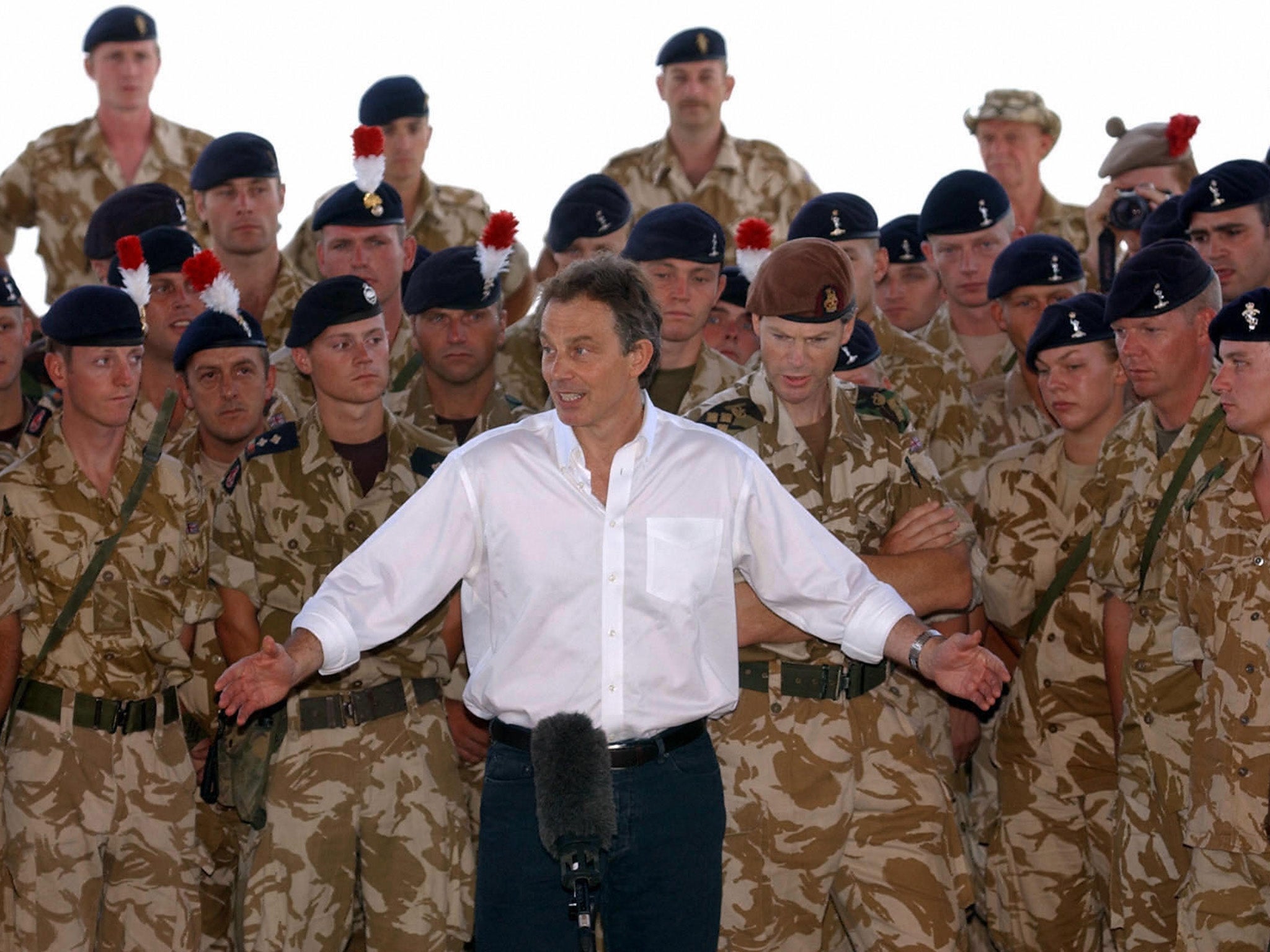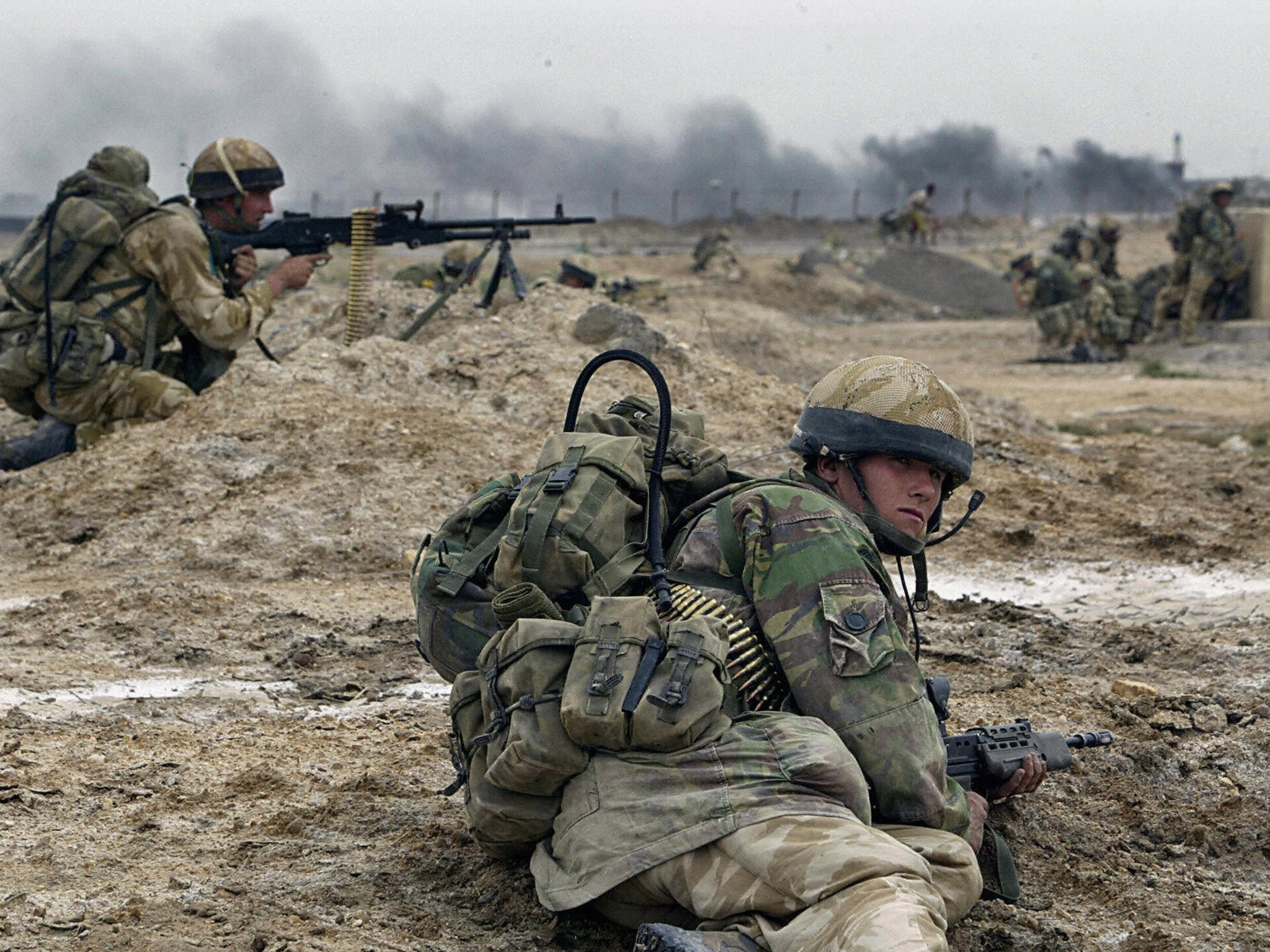Tony Blair rubbishes claims he hid decision to go to war in Iraq from his own ministers
A new book alleges the former Prime Minister wanted to plan an invasion but refused to start arming troops earlier in case the public found out

Your support helps us to tell the story
From reproductive rights to climate change to Big Tech, The Independent is on the ground when the story is developing. Whether it's investigating the financials of Elon Musk's pro-Trump PAC or producing our latest documentary, 'The A Word', which shines a light on the American women fighting for reproductive rights, we know how important it is to parse out the facts from the messaging.
At such a critical moment in US history, we need reporters on the ground. Your donation allows us to keep sending journalists to speak to both sides of the story.
The Independent is trusted by Americans across the entire political spectrum. And unlike many other quality news outlets, we choose not to lock Americans out of our reporting and analysis with paywalls. We believe quality journalism should be available to everyone, paid for by those who can afford it.
Your support makes all the difference.Tony Blair has rejected claims he knew he wanted to go to war in Iraq as early as November 2001 but hid it from cabinet colleagues and senior civil servants, a new book has claimed.
An exposé of the Blair years by investigative journalist Tom Bower has alleged the former prime minister said he supported the idea of regime change in Iraq in a meeting with the then newly appointed Chief of the Defence Staff, Admiral Mike Boyce just after the invasion of Afghanistan.
He is reported to have said he knew that there would be several legal obstacles in the way of an Iraqi invasion. As a consequence, it is alleged, the military were unprepared and ill-equipped for the invasion.
The book, being serialised in the Daily Mail, also accuses Mr Blair of asking for raw intelligence to be sent directly to him so he reportedly boost the chances of forging an agreement in the case for regime change.
A spokeswoman from Mr Blair’s office told The Independent: "This is - exactly as we expected - a squalid, distasteful and pathetic exercise in recycling garbage unsurprisingly serialised and sensationalised in the Mail.
"From what we have already seen it is riddled with invention and inaccuracy and the idea it is 'authoritative ' is laughable. The writer specialises in such 'books' which is why we gave him no co-operation whatever."
During his evidence to the Chilcot Inquiry in January 2010, Mr Blair denied that he had begun planning for war during the negotiations saying he had not decided what to do because he "could not be sure that the UN route would not work".
But he did admit that he had decided to go to war in January 2003 regardless of whether he received UN backing. He also claimed that the hunt for WMDs - which were never found - was irrelevant because Saddam Hussein’s actions would have pushed Western powers to invade anyway by 2010.
The book claims Mr Blair’s apparent secrecy allegedly “cost the lives of British soldiers” because he refused to order “vital” body armour as late as October 2002 in a bid to keep invasion plans under wraps.
At the time Mr Blair was taking part in UN negotiations with Hussein over allowing weapons inspectors into the country to look for WMDs and wanted to present himself as an “honest broker” in the peace negotiations.
In the end the Armed Forces calculated the need another £2.6 billion in funding for the war but were only allocated £1 billion.
Mr Blair is alleged to have believed that Iraqi officers would rise up and depose Hussein before British and American forces arrive in Baghdad.
The book claims he believed an unknown Iraqi president would then be installed and would led the country towards western-style democracy despite being repeatedly told by Middle East experts that the country would descend into civil war.
During the conflict 179 British troops, more than 4,000 Americans and 100,000 Iraqi civilians were killed.
The country has been further destablised in recent years with the rise of terror group Isis, which now controls vast swathes of territory - including the country's second city Mosul.
Mr Blair is also alleged to have excluded the Cabinet from decision making on Iraq even though then Transport Minister Alistair Darling asked to see papers on the subject at a meeting as early as March 2002.

Another person excluded from the secret discussions was the civil servant who was in charge of the Ministry of Defence, Kevin Tebbit.
He said he called foreign policy adviser David Manning to ask "How can you plan a war without the head of the Ministry of Defence?".
Mr Blair's former spin doctor Alistair Campbell tweeted to say the book is "half-baked sh***" while his former speechwriter Philip Collind said: "Bower's book is a pile of s***. He can have that for the dust jacket".
The Independent has also reached out to Lord Boyce for comment.